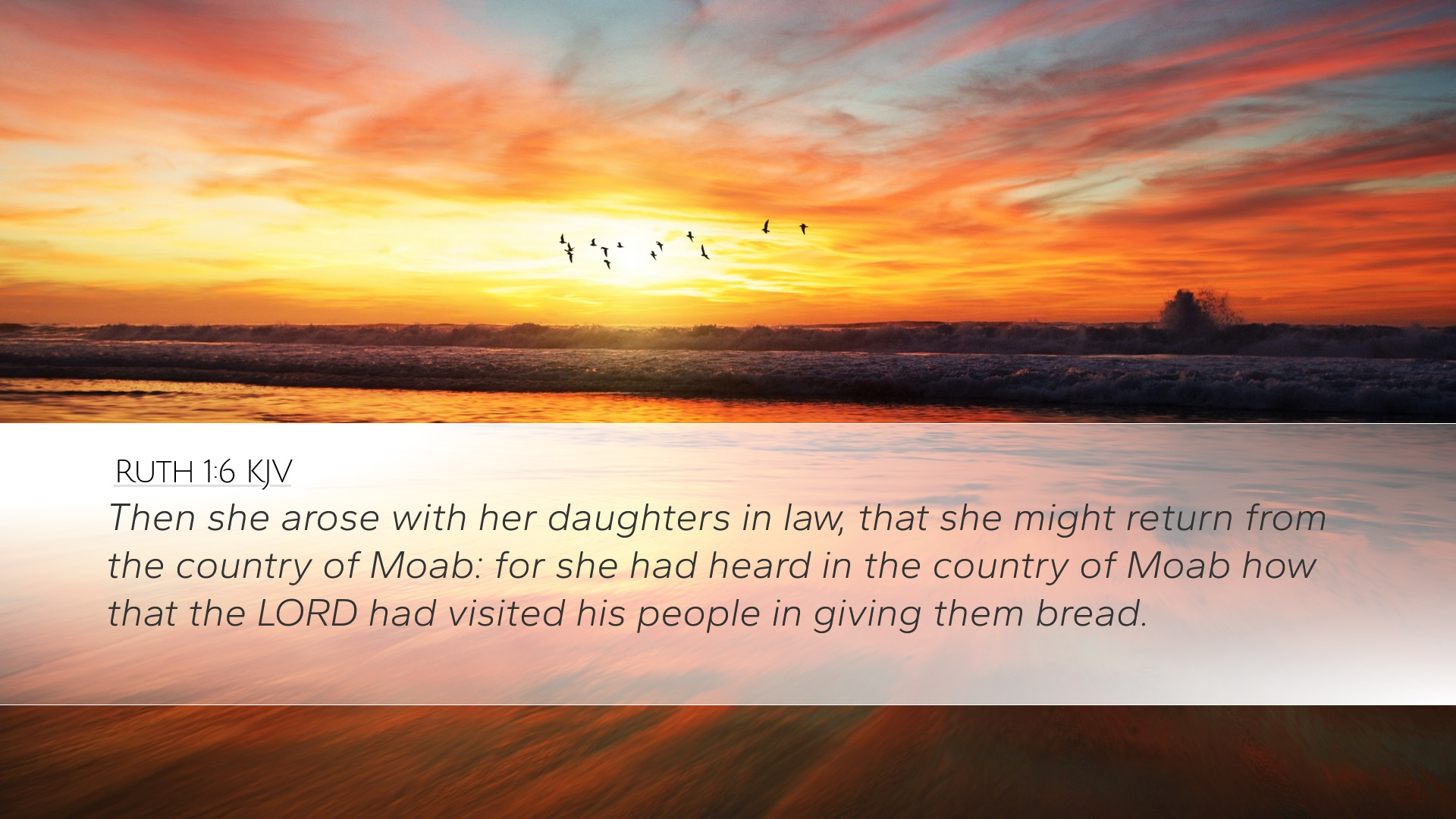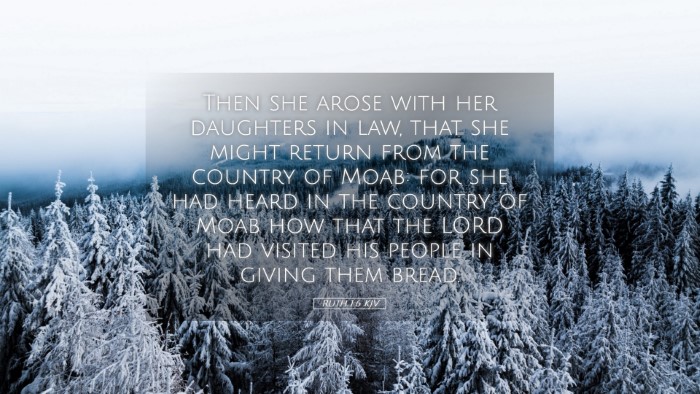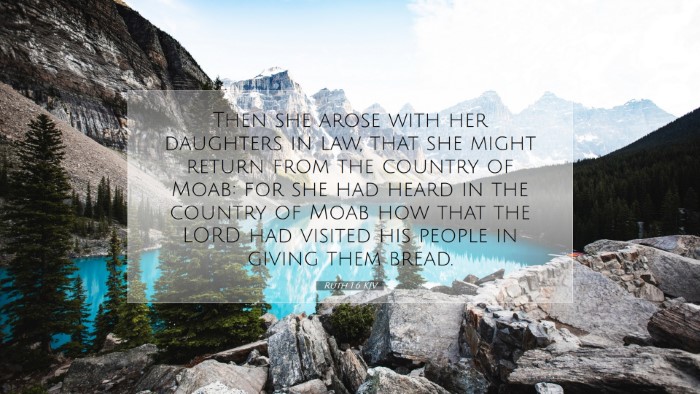Old Testament
Genesis Exodus Leviticus Numbers Deuteronomy Joshua Judges Ruth 1 Samuel 2 Samuel 1 Kings 2 Kings 1 Chronicles 2 Chronicles Ezra Nehemiah Esther Job Psalms Proverbs Ecclesiastes Song of Solomon Isaiah Jeremiah Lamentations Ezekiel Daniel Hosea Joel Amos Obadiah Jonah Micah Nahum Habakkuk Zephaniah Haggai Zechariah MalachiRuth 1:6
Ruth 1:6 KJV
Then she arose with her daughters in law, that she might return from the country of Moab: for she had heard in the country of Moab how that the LORD had visited his people in giving them bread.
Ruth 1:6 Bible Commentary
Bible Commentary on Ruth 1:6
Verse: "Then she arose with her daughters-in-law to return from the country of Moab, for she had heard in the fields of Moab that the Lord had visited his people and given them food."
Contextual Overview
This verse marks a significant turning point in the narrative of the Book of Ruth. It encapsulates a moment of hope and divine providence, coming as a response to the famine that had pushed Naomi and her family into Moab. The decision to return is rooted in the news of God's provision for His people in Bethlehem, which highlights themes of redemption, providence, and faith.
Theological Insights
The action of Naomi arising to return signifies not just a physical journey, but a profound spiritual reawakening. As Matthew Henry articulates, "It is not enough to hear of mercy; we must arise and pursue it." This showcases the interplay between divine grace and human agency. Naomi's movement back to Bethlehem is prompted by the news of God's intervention, implying a connection between God's providential care and human response.
Naomi's Loss and Decision
Adam Clarke notes that the decision to return comes after immense personal loss, as Naomi was bereaved of her husband and sons. Yet, amidst grief, hope emerges. This transition illustrates the resilience of faith, suggesting that even in despair, there exists the possibility of restoration through God’s grace and community support.
The Significance of "Heard"
The term "heard" in this verse is particularly significant. As Albert Barnes points out, it indicates that divine intervention is often communicated through the wider community. The information about God's favor towards Bethlehem is a reminder that God's mercies are often revealed in communal settings—an encouragement for believers to share testimonies of God's provision and blessings.
Application for Today's Believers
This passage invites contemporary readers to reflect on their own "Moab" experiences—those times of spiritual famine or challenge. Like Naomi, they are called to recognize signs of God's activity in their lives, prompting movement towards spiritual and physical nourishment.
The Role of Community
The shared experiences of Naomi and her daughters-in-law illustrate the importance of community in making life-altering decisions. Many commentaries emphasize that the journey back to faith or restoration is often undertaken in the company of others, fostering an environment of support and shared purpose.
Faith and Community as Catalysts for Change
The return to Bethlehem does not just symbolize geographical movement; it embodies a return to covenant community and divine promise. Matthew Henry highlights that "though she had lost all, yet there was a people of God in the land." This serves as a compelling reminder that in times of uncertainty, the Church and community are places of refuge and renewal.
Historical and Cultural Context
Understanding the cultural backdrop of ancient Israel enriches the interpretation of this verse. The experience of famine often carried both physical and theological implications during this time, indicating the community's standing with God. Therefore, Naomi's return can be seen as both a personal journey and a theological statement about returning to God's favor.
God’s Provision
The mention of food signifies God's restoration of His covenant people. Commentators like Adam Clarke emphasize that the provision of physical needs often mirrors spiritual restoration. The assurance of food aligns with God’s promise to sustain those who seek refuge in Him and His community. This principle of divine sustenance underlines a broader truth applicable today: God provides both for body and soul.
Conclusion
Ruth 1:6 serves as a profound reminder of God’s faithfulness in times of need. It emphasizes the importance of recognizing God’s provisions and returning to Him and His people. The movement from despair to hope is reflective of the journey of faith that many believers experience. Pastors, students, and theologians are reminded through this text of the necessity of community, the act of hearing divine promises, and the unwavering faithfulness of God in our lives.
Reflection Questions
- What does it mean for us to "arise" and seek God’s provision in our lives today?
- How can we support and encourage one another in moments of spiritual famine?
- In what ways can we share testimonies of God’s faithfulness to inspire others within our communities?


